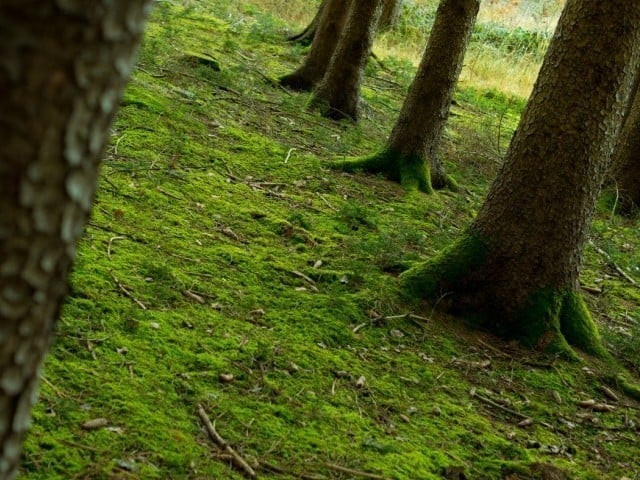Forest classification: Study suggests applying new assessment system
Holdridge life zones classification system forecasts and detects changes in environment and vegetation patterns

Holdridge life zones classification system forecasts and detects changes in environment and vegetation patterns PHOTO: FILE
A new research paper has suggested applying Holdridge life zones (HLZ) system for forest classification in Pakistan.
The classification system forecasts and detects changes in environment on a large scale and helps assess the possible changes in vegetation patterns due to global warming.
The study, published in the ‘Pakistan Journal of Botany’, examines and juxtaposes the existing systems used in Pakistan with contemporary global systems and tessellates to increase vegetation and forest cover.

The author of research paper Inspector General (IG) Forest Syed Mehmood Nasir and co-authors PhD scholars Afrasiyab and Muhammad Athar have proposed application of the classification system in Pakistan to understand climate change patterns and its effects on tropical forests and vegetation.
While commenting on the study, Met Office former director general Dr Qamar Zaman Chaudhry said that the research suggestions could be very helpful for planning and implementing forest policy to increase the tropical forest cover. He said that world has been using the classification system since long and its application in Pakistan will yield dividend, which needs great appreciation.
Ministry of Climate Change Director Biodiversity Naeem Ashraf Raja highlighted the significance of the paper in the context of inter-governmental negotiations on climate change wherein tropical countries have leverage in accessing global climate finances.
“Now, Pakistan can safely join the club of tropical countries — hot favourites for accessing the climate finance for
saving forests,” he said adding that Indonesia has got
billions of dollars to save tropical forests under the current regime.
“The classification of an ecosystem is important in understanding climate change patterns. Currently, no ecological classification system exists in Pakistan which is regarded a universally accepted system.
Previous classifications were made to fulfil specific objectives,” IG Nasir told The Express Tribune. He hoped that the new study would help in understanding climate change patterns in Pakistan while aligning it with the globally accepted uniform system.
“This study takes into account a new era to empirically capture impacts of climate change on vegetation in Pakistan as the HLZ system provides an opportunity for spatial modelling of the climate change influence on vegetation pattern,” the IG forest said.
From 1901 to 1930, researchers attempted to develop different systems for classification of forest in the world but after 1960, most countries adopted the HLZ classification system.

The Pakistan Agriculture Research Council (PARC) also made classification of forests in Pakistan on the basis of agro-ecological zones by taking district boundaries as one of the parameters for classification of forest.
While taking about the PARC classification and other descriptive methods, the study says, “In this system, irrigation water was also taken as a parameter, but did not consider the nature.
These classifications detect the climate change in the temperature regime and both cannot forecast quality of climate change unless it happens.”
The study says that these systems cannot forecast extreme events such as floods and extreme droughts and they would have to change their maps after extreme events happened.
While talking about different systems, Nasir said that the HLZ system simply finds the rate of rainfall and compares it with the rate of evaporation.
“If the rate of water evaporation is higher than the rate of rainfall in a particular, then, the result or the area is considered a desert”.
Similarly, if in tropical zones the rainfall is higher than the rates of evaporation, it will have lush green forests and vegetation, he said.
Published in The Express Tribune, February 1st, 2016.



















COMMENTS
Comments are moderated and generally will be posted if they are on-topic and not abusive.
For more information, please see our Comments FAQ